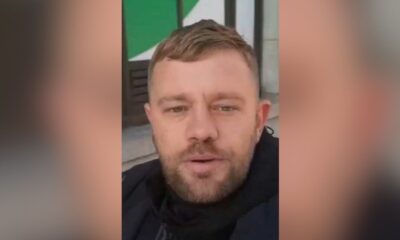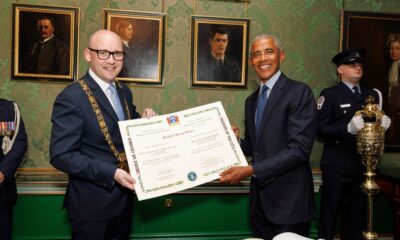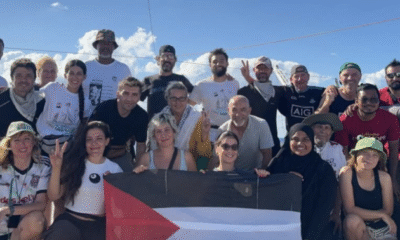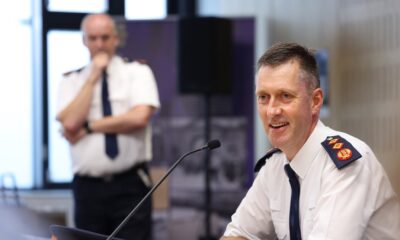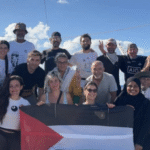Breaking News
Barack Obama spread hope of ‘brighter days ahead’ as he became a freeman of Dublin
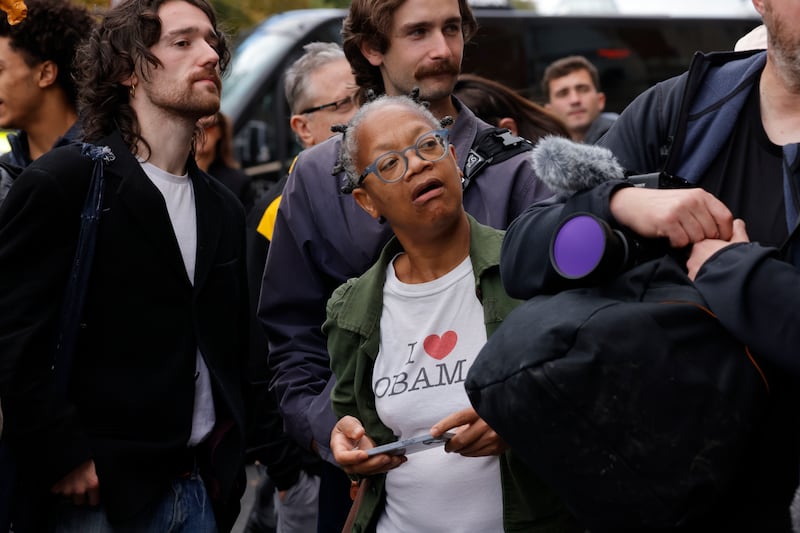
Read more on post .
Fourteen years ago, US president Barack Obama stepped on stage at Dublin’s College Green to a rapturous reception. The 60,000 crowd had been worked up to hysterical levels of excitement by warm-up acts including Westlife and Jedward, and sports figures Brian O’Driscoll and Katie Taylor, as well as Taoiseach Enda Kenny.
On Thursday, Mr Obama was back in town to receive the Freedom of the city of Dublin. He was greeted by Lord Mayor Ray McAdam, seven other city councillors, Minister for Finance Paschal Donohoe and former Taoiseach Brian Cowen. Also in attendance was former Lord Mayor Brendan Carr, who proposed Mr Obama for the honour eight years ago, as well as city council chief executive Richard Shakespeare and a small number of other officials and dignitaries.
The ceremony, attended by a crowd of about 30, was held in the Constitution room of the Shelbourne Hotel opposite St Stephen’s Green, the park where Mr Obama now has the right to graze sheep. Neither the media nor the general public were permitted to attend.
The former US president was presented with a copy of the first American edition of Ulysses and a bottle of whiskey. He signed the official scroll, making him a freeman of Dublin. According to one or two of those present, he said a few words referencing the “challenging times” the world was facing, and the need for “hope” that there would be “brighter days ahead”.
He stood for some photos, shook hands, told Green Party councillor Janet Horner she looked very young to be a politician (she was delighted) and the whole event was done and dusted in about half an hour.
Afterwards, Cllr Horner said Mr Obama was “very warm”, while Social Democrats councillor Cat O’Driscoll said the ceremony was “quite nice” and “an uplifting occasion”.
Cllr McAdam said it was a privilege to have the opportunity to award Mr Obama the Freedom of Dublin, saying the former president had shown that words coupled with convictions “could still move mountains”. Cllr McAdam reflected on the words of Beckett: “Better hope deferred than none”.
Groups leaders of each party on the council were invited to the ceremony, but Sinn Féin, People Before Profit and the Independent group declined to attend.
The Independent group said it was boycotting the event due to Mr Obama’s foreign policy regime in office, including his support of Israel “despite its war crimes in Gaza and relentless settlement expansion”.
About 50 people gathered outside the Shelbourne Hotel during the ceremony, some expressing similar sentiments.
Mark Price of the Irish Anti War Movement said he was there to “protest Barack Obama’s visit to Dublin”.
“He’s been an absolute operative for the American empire and we should not be [giving] him the Freedom of the city of Dublin, in my opinion,” he said.
“He might have made some statements early in his presidency about Guantanamo Bay and Palestine and so on, but in practice, he vastly increased instability through drone warfare in Afghanistan and Pakistan and through escalating the Ukraine situation in 2014.”
However, most shared positive sentiments. Danielle Bochneak, from Obama’s hometown of Chicago, who has been living in Ireland for two years, recalled meeting him on the night he secured his first presidential term in 2008. “It was just a handshake, but he makes a connection with everyone that he comes in contact with . . . so that was really incredible.”
Asked why she came to the Shelbourne on Thursday afternoon, she said: “I miss him. We are lacking the civility that president Obama and Michelle Obama bring to the White House, so I really wanted to see them again.”
Terri McClain, from Seattle, wearing an “I heart Obama” t-shirt, said she flew to Dublin to attend Obama’s public interview with Fintan O’Toole, which will take place in the 3Arena on Friday evening.
“We all miss him in the States and what’s happening now is not a good thing,” she said. “God bless president Obama, he’s a good person and I support him all the time.”
Sylvia Jones from Dublin and Dave Quinn from Limerick joined the crowd at the Shelbourne “to support Obama”.
Wearing a shirt that read “Trump Not Welcome”, Ms Jones said she is “wishing for better times, the good times when [Obama] was in power, not this absolute disaster that’s happening at the moment”.
Breaking News
YouTuber jailed over posts identifying asylum seekers
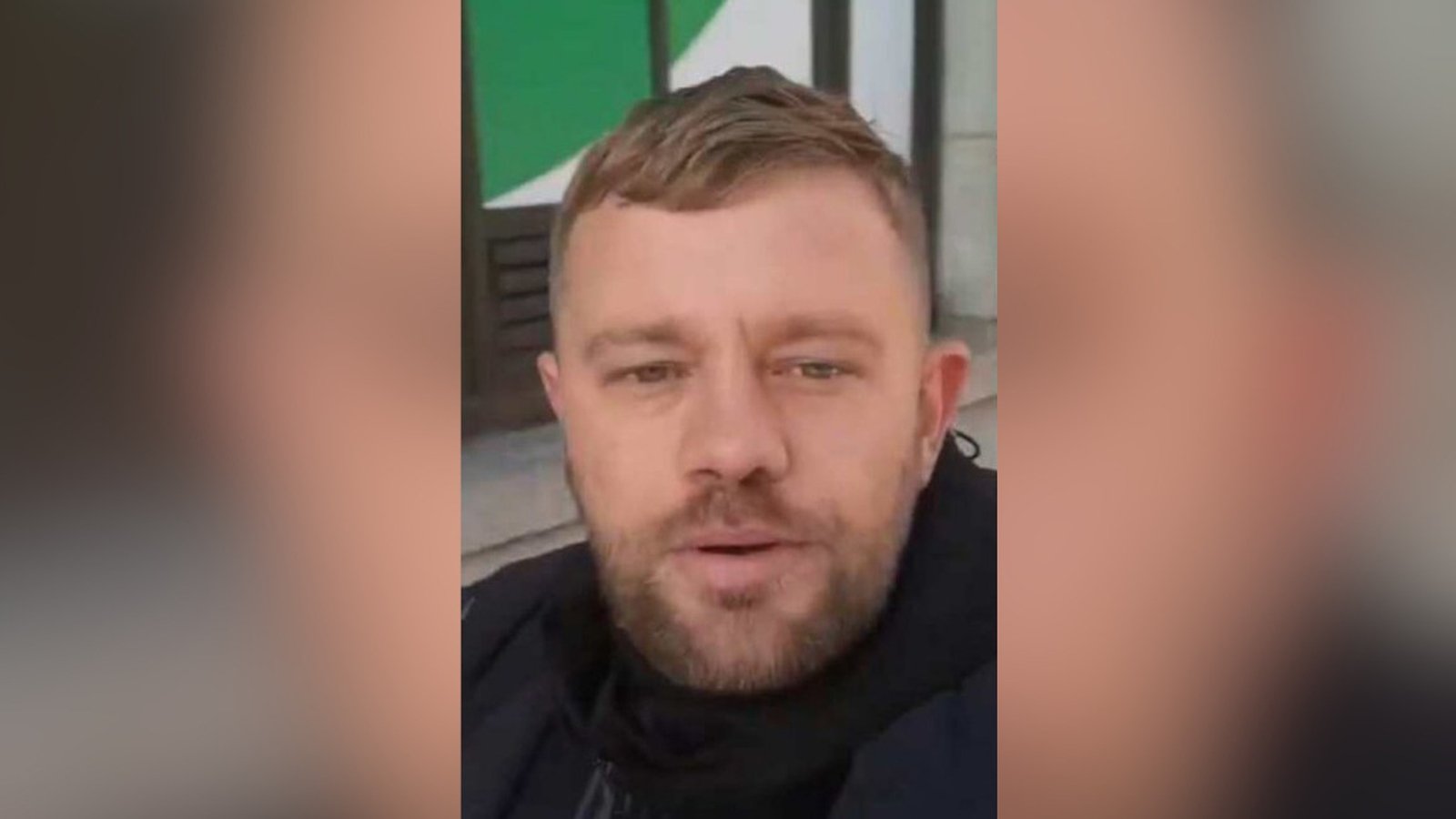
Read more on post.
A self-described citizen journalist and YouTuber has become the first person to be jailed in a landmark case for online posts which risked identifying asylum seekers in Ireland.
Paul Nolan, 36, of Mount Eagle Square, Leopardstown in Dublin, stood outside the IPAS centre at St John’s House, High Street, Tallaght, on 22 and 26 August 2024 and questioned teenage boys, a young woman, and three middle-aged men who were staying at the facility.
Nolan goaded applicants, saying, “In Ireland, you have no right to privacy”, and posted videos of his interactions on his YouTube channel.
The four clips revealed their faces and were captioned: “Time to document these people ourselves”, “These men are so aggressive, if you’re fleeing war, take your aggression there”, “Cheeky fella these economic welfare scammers”, “I know what I’d do if Ireland went to war, pick up a weapon and fight”.
Nolan, a father-of-three, questioned a man who said he was from Gaza about why he was here and not fighting in his own country.
One clip featured a recording of The Irish Rover by The Pogues and The Dubliners, while showing some applicants heading back into the building; it also had a banner saying “Face’s [sic] we are after”.
The community employment scheme worker pleaded not guilty at Dublin District Court to engaging in threatening, insulting and abusive words or behaviour, under the Public Order Act.
International protection applicants have the legal right to anonymity.
He also denied four counts under Section 26 of the International Protection Act 2015, which states that, without the consent, it is an offence to publish in a written publication available to the public or broadcast, or cause to be so published or broadcast, information likely to lead members of the public to identify a person as an applicant.
‘Tissue of lies, wrapped in a shroud of pseudo-citizen journalism’
Judge John Hughes noted that this was the first time a prosecution had been brought for this offence, which is punishable by a 12-month sentence.
He was given a ten-month sentence but had the final three months suspended on condition that he stays under supervised probation, completes an anger management counselling course, and remains away from IPAS facilities for two years.
The videos must also be taken down if that has not been done already.
“A disgraceful, glorious display of rudeness, hyena-like behaviour, and ignorance of the people involved”
His videos featured three middle-aged men, including one whose teenage sons, both minors, had been filmed and questioned by Nolan, along with another 15-year-old boy and his 22-year-old sister.
Judge Hughes described his conduct as repeated, premeditated and targeted.
He slated the accused, saying he used, “a tissue of lies, wrapped in a shroud of pseudo-citizen journalism.”
Sentencing, he brandished his conduct as “A disgraceful, glorious display of rudeness, hyena-like behaviour, and ignorance of the people involved.
Nolan attempted to convince the court that, in his role as an untrained citizen journalist, he had learned about a demonstration outside the building and went to investigate for his YouTube channel.
He knew the building had previously been used by Revenue, and undocumented, unvetted men of military age had moved in; however, he maintained that he was unaware it was an IPAS centre.
He claimed that he learned from a comment by Taoiseach Micheál Martin and from RTÉ news that 80% of asylum seekers were economic migrants.
Witnesses from Palestine and Jordan gave evidence.
The father of two boys filmed by the accused said his sons were aged 14 and 17 at the time.
Video evidence showed one of them was threatened by Nolan, who said he would break his nose because the teen had elbowed him out of his way.
He told an applicant approaching the centre: “I already got your face, no need to put your hand up”, and mimicked their accents and narrated his videos once, saying, “These are dangerous people we have walking the streets of Tallaght”.
Nolan already had 47 prior convictions, including public order charges, 19 for drug offences and he had also been jailed previously for six months for dangerous driving.
Cross-examined by prosecution counsel Oisín Clark BL, he claimed he still did not know what the building was when he returned to the centre days later to continue filming people.
Mr Clarke, in his closing speech, described Nolan’s version as “garbled, self-serving, and he contradicted himself”, and the barrister added that the accused had no credibility.
The defence pleaded with the court to acquit because it could not be established that anyone in the centre risked being identified; however, the judge held that the evidence was sufficient to convict.
Garda Inspector Nigel McInaw headed the investigation, which led to the examination of phone videos and bank records that linked the accused to the YouTube account.
Detective David Sheahan identified Nolan from CCTV evidence.
Breaking News
Police investigating death of Irish woman in Benidorm
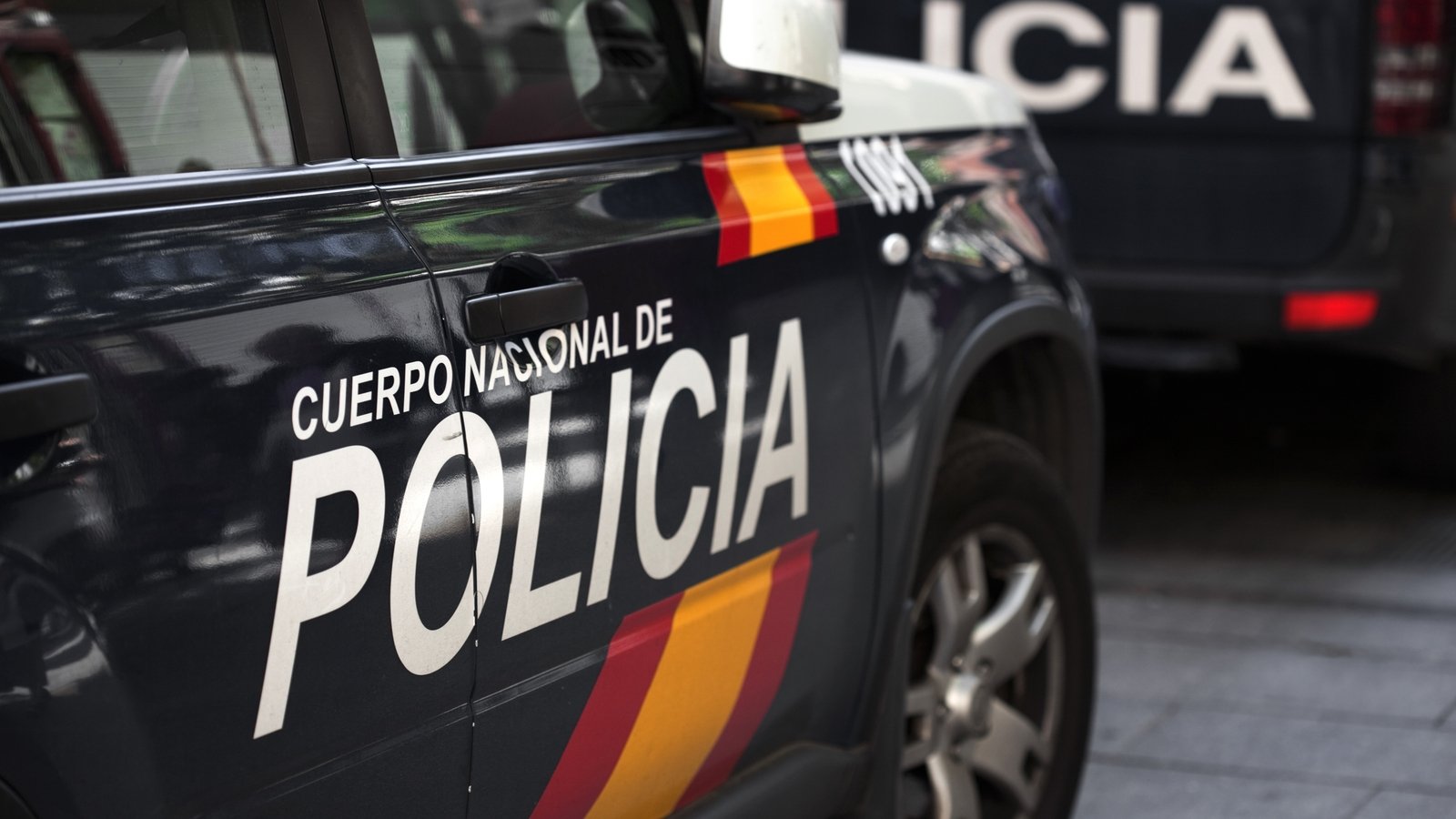
This post was originally published on this site.
Spanish police are investigating the death of an Irish woman in Benidorm.
The woman – who died last week – has been named locally as Catherine ‘Cat’ Peckham, who was aged 65.
Police say they are treating the death as homicide.
Local media in Spain are reporting that Ms Peckham was originally from Cork, but had connections to the UK and had been living in Spain for some years.
It is understood Ms Peckham died after an incident in the Rincon de Loix area of Benidorm on 17 September.
Her body was taken to the Benidorm Medical Judicial Institute for an autopsy to be carried out.
Spanish police confirmed a 63-year-old British woman has been arrested in connection with the investigation.
A Spanish National Police spokesperson said: “We have launched a homicide investigation into the death of an Irish national and all possibilities are open at present.
A spokesperson for the Department of Foreign Affairs said it was aware of the case and was providing consular assistance.
Breaking News
Significant additional resources required for national security, says commissioner
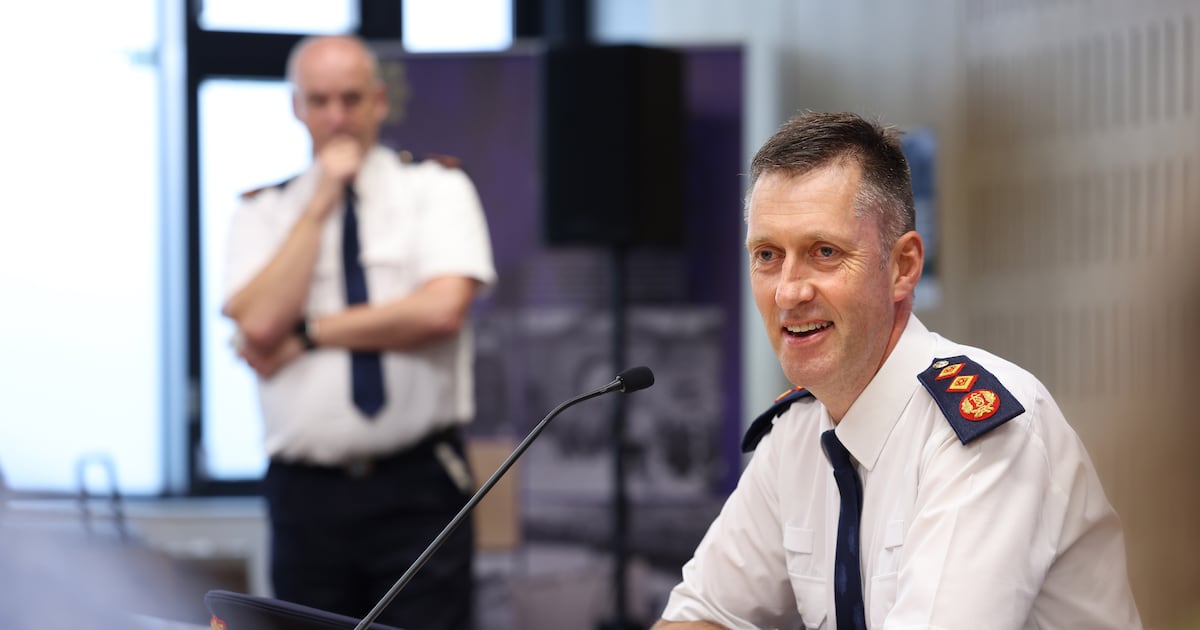
Read more on post.
An Garda Síochána is to significantly increase resources devoted to national security in light of the worsening geopolitical situation.
This will include additional resources for the Special Detective Unit, which deals with State security, and the Emergency Response Unit.
There will also be additional resources for surveillance and interception technology, said new Garda Commissioner Justin Kelly, warning this may mean fewer resources for other policing areas.
Tasers are also to be rolled out to gardaí on a pilot basis in early 2026, while all frontline members will likely be issued with body cameras in the second half of the year.
Mr Kelly laid out the plans in his first appearance as commissioner before the Police and Community Safety Authority (PCSA), previously known as the Policing Authority.
The commissioner took the unusual step of addressing national security matters with the PCSA, a body that typically deals exclusively with traditional policing matters.
“Everybody knows we’re in a particularly volatile time at the moment, geopolitically,” he said. “We are absolutely not immune to some of the effects here in Ireland. We have already seen some of the ripple effects.”
He said the Garda has to increase its capabilities and equipment in the area of national security. “Obviously, with that, there may be some other areas that we’re not able to give as much focus to.”
Mr Kelly, who previously headed the Special Detective Unit, said national security is a priority for him.
Activities such as cyberattacks and drone incursions, seen in other EU countries recently, are “absolutely” affecting the State, said the commissioner.
Referring to the threats from drones, he mentioned a recent incident where gangland criminals attempted to use a drone to drop a pipe bomb on a rival’s home.
He said he is limited as to what he can discuss publicly, but “in the background we’re building our capabilities to make sure that we’re doing everything we can to keep people safe from these type of hybrid threats”.
The commissioner declined to say if hostile states are targeting the Republic, but he said it is not immune to such threats as well as threats from extremists and terrorists.
“We need to look at our technology, our training, our people, our resourcing and the amount of people that we assign to this type of work.”
He said Minister for Justice Jim O’Callaghan is very supportive of the Garda’s work in this area.
Mr Kelly told the PCSA there is a need to equip gardaí with Tasers to deal with knife-wielding suspects. He cited “some absolutely horrific incidents” involving armed suspects, including a recent knife attack on a garda on Capel Street in Dublin.
“We’ve had a number of incidents where assailants had swords or long weapons. And unfortunately, we have had situations where officers had to retreat out of the area, retreat into their vehicles.”
Assistant Commissioner Paul Cleary said he is “cautiously optimistic” that a pilot , of Tasers will be ready for early 2026. These will only be issued to gardaí equipped with body cameras, the authority was told.
The full rollout of body cameras to all frontline gardaí will likely take place in the second half of next year, said Mr Cleary. This follows a successful pilot programme in several areas.
Separately, the new commissioner said he was shocked and disappointed by parts of the Crowe report, which recently found that a minority of roads policing gardaí were neglecting their duties and had little interest in the work.
“We’re expecting people to come in and do an honest day’s work for an honest day’s pay. That’s the least we expect people to do.”
Mr Kelly said he is “deeply, deeply sorry that some of that behaviour is out there. Obviously, as the Garda Commissioner, it’s something that we have to rectify”.
-
Culture2 days ago
Taylor Swift’s new cinema outing generates more than €12million in just 24 hours
-
Politics2 days ago
European Parliament snubs Orbán with vote to shield Italian MEP from Hungarian arrest
-
Culture2 weeks ago
Life, loss, fame & family – the IFI Documentary Festival in focus
-
Health3 days ago
EU renews support for WHO’s Universal Health Coverage Partnership
-
Culture2 months ago
Fatal, flashy and indecent – the movies of Adrian Lyne revisited
-
Culture3 days ago
Twilight at 20: the many afterlives of Stephenie Meyer’s vampires
-
Environment6 days ago
Key oceans treaty crosses threshold to come into force
-
Culture1 week ago
Farewell, Sundance – how Robert Redford changed cinema forever


